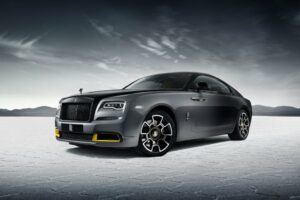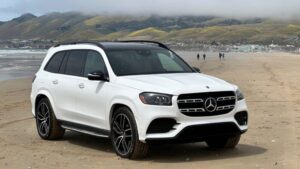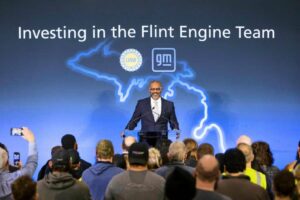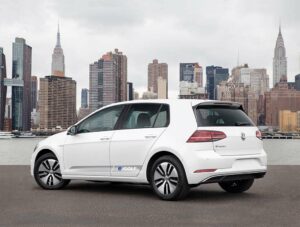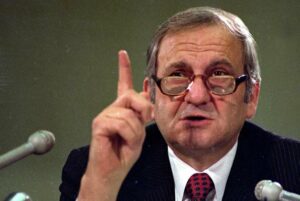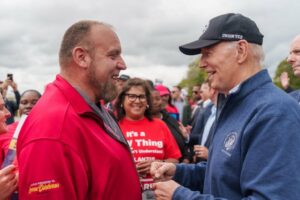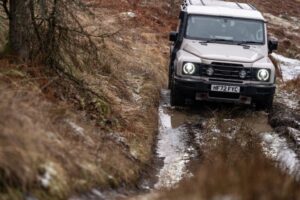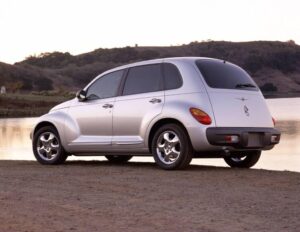Ford Motor Co. will invest $1.3 billion to transform its Oakville Assembly Complex near Toronto into a “high-volume hub” for EV manufacturing.
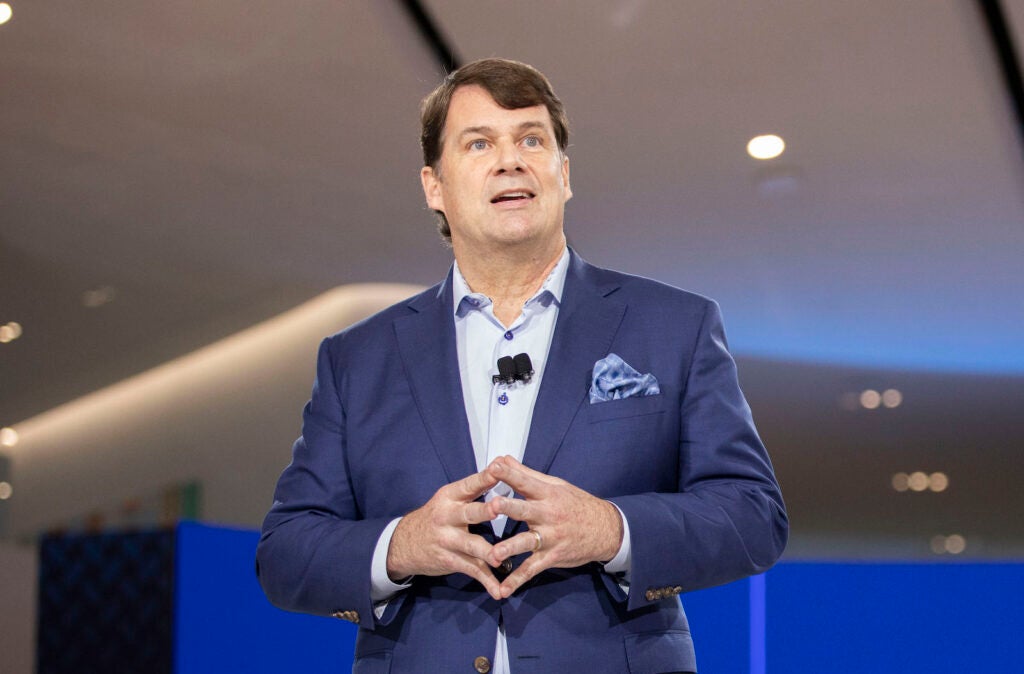
The facility currently produces the gas-powered Ford Edge and Lincoln Nautilus SUVs. Work on the newly renamed Oakville Electric Vehicle Complex will begin during the second quarter of 2024, with production of what Ford described as “next-generation electric vehicles” to begin sometime in 2025.
“Canada and the Oakville complex will play a vital role in our Ford+ transformation,” Ford CEO Jim Farley said in a statement released Tuesday. “It will be a modern, super-efficient, vertically integrated site for battery and vehicle assembly. I’m most excited for the world to see the incredible next-generation electric and fully digitally connected vehicles produced in Oakville.”
Ford plugs in
After a slow start, Ford is making an aggressive push into the EV market. Though it lags well behind segment leader Tesla, its Mustang Mach-E SUV and F-150 Lightning pickup are two of the most popular all-electric models in the U.S. The Mach-E is this year expected to outsell the traditional Mustang coupe.
Ford currently produces EVs at several locations, the Mach-E in a facility in Cuautitlan, Mexico, the Lightning in Dearborn, Michigan. The e-Transit, an all-electric version of its big van, rolls off the line near Kansas City, Missouri.
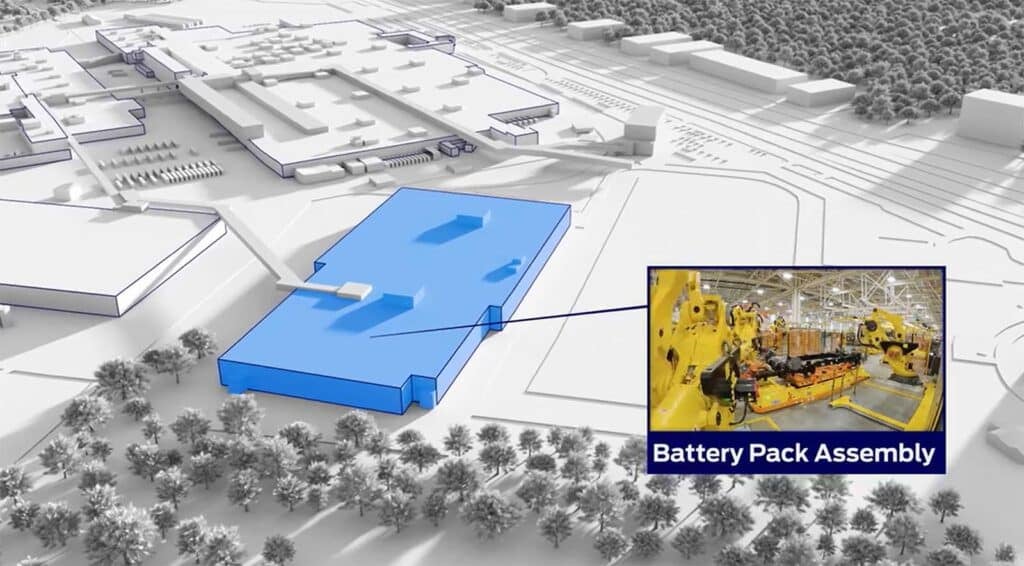
With the announcement of the Oakville project, Ford now has two more EV factories in construction. BlueOval City, a 5 square-mile facility near Memphis, will roll out a successor to the Lightning and other truck products starting around 2026.
Oakville plans
The automaker did not reveal which products will be assembled at Oakville, only indicating it will be a “family of EVs.”
There has been speculation that the factory will produce all-electric versions of the Ford Explorer and Lincoln Aviator. TheDetroitBureau.com has learned that those two SUVs are not scheduled for Oakville, however.
A long history
The Oakville Assembly Complex opened in 1953 and, early on, produced a full range of models for the Canadian market. In recent decades it has been integrated into Ford’s North American manufacturing network under NAFTA.
Ford has committed $11 billion in its electrification program. Until now, however, it focused on manufacturing sites in the U.S. and Mexico. Concerns about the future of the Oakville plant arose as the automaker began shifting from internal combustion engines, or ICE, to electric propulsion.
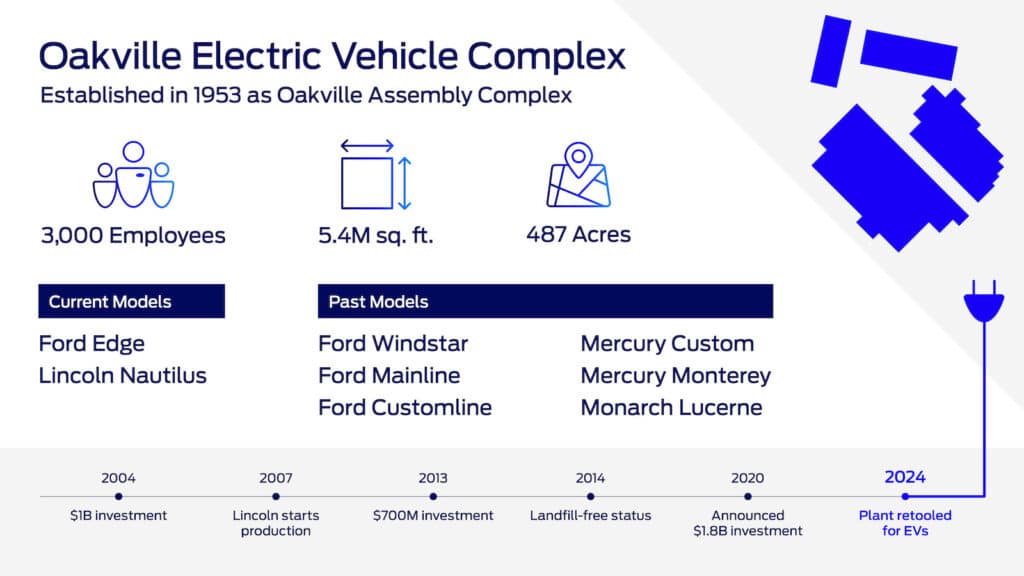
As part of the new project, Ford will retool and repurpose existing operations on the 487-acre Oakville site. That includes three body shops, a paint building and an assembly plant. It will add a new, 407,000 square-foot battery pack facility. It will utilize lithium-ion cells shipped from the new BlueOval SK Battery Park in Kentucky.
“Ford’s commitment to invest in OAC retooling and upskilling signals a bright future for Canadian EV production and for Canadian auto sector employment,” Lana Payne, president of Unifor, the union representing Canadian autoworkers. “The transformation of the Oakville plant is an important step towards a stronger industry and testament to the hard work, skills and dedication of our Unifor Oakville Assembly Complex members.”
Expanding battery production
Ford will operate two battery cell plants in Kentucky and a third at BlueOval City. Earlier this year the automaker also announced plans for a fourth battery plant in Marshall, Michigan, on the state’s west side.
Canadian officials have committed $500 million in assistance for the Oakville project.
The automaker also is setting up battery manufacturing and EV assembly operations in Europe.
- SEO Powered Content & PR Distribution. Get Amplified Today.
- Platoblockchain. Web3 Metaverse Intelligence. Knowledge Amplified. Access Here.
- Source: https://www.thedetroitbureau.com/2023/04/ford-investing-1-3-billion-to-turn-ontario-plant-into-high-volume-hub-for-ev-production/
- :is
- $UP
- 000
- 2024
- a
- About
- aggressive
- all-electric
- American
- and
- announced
- Announcement
- ARE
- around
- AS
- assembled
- Assembly
- Assistance
- At
- auto
- battery
- BE
- began
- begin
- behind
- Big
- Billion
- body
- Bright
- Building
- Canadian
- Cells
- ceo
- City
- CO
- COM
- commitment
- committed
- Company’s
- complex
- Concerns
- connected
- construction
- critical
- Currently
- decades
- dedication
- described
- DID
- digitally
- during
- Earlier
- Early
- Edge
- Electric
- electric vehicle
- employment
- Engines
- Europe
- EV
- excited
- existing
- expected
- explorer
- Facility
- factories
- factory
- focused
- For
- Ford
- Fourth
- from
- full
- fully
- future
- Hard
- hard work
- Have
- However
- HTTPS
- ICE
- important
- in
- includes
- incredible
- indicating
- industry
- integrated
- internal
- Invest
- investing
- IT
- ITS
- Jim
- jpg
- Kansas
- Kansas City
- Kentucky
- leader
- learned
- lightning
- Lincoln
- Line
- locations
- Long
- Making
- manufacturing
- Market
- max-width
- Members
- Mexico
- Michigan
- million
- models
- Modern
- more
- most
- Most Popular
- Motor
- Near
- network
- New
- next-generation
- North
- of
- on
- Ontario
- opened
- operate
- Operations
- Other
- Pack
- paint
- Park
- part
- Pickup
- plans
- plants
- plato
- Plato Data Intelligence
- PlatoData
- Play
- Popular
- president
- produce
- Produced
- Production
- Products
- Program
- project
- propulsion
- Push
- Quarter
- range
- recent
- released
- representing
- reveal
- Role
- Roll
- rolls
- s
- Said
- scheduled
- Second
- second quarter
- sector
- segment
- setting
- several
- SHIFTING
- shipped
- shops
- signals
- site
- Sites
- skills
- slow
- speculation
- split
- start
- Starting
- Statement
- Step
- stronger
- SUVs
- Tesla
- testament
- that
- The
- The Future
- the world
- Third
- this year
- three
- to
- toronto
- towards
- traditional
- Transform
- Transformation
- truck
- Tuesday
- TURN
- u.s.
- under
- union
- upskilling
- utilize
- vehicle
- Vehicles
- version
- vertically
- vital
- WELL
- West
- What
- which
- will
- with
- Work
- world
- year
- zephyrnet

